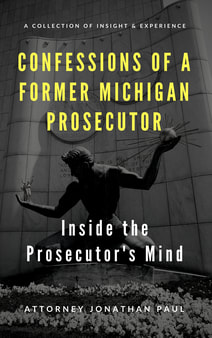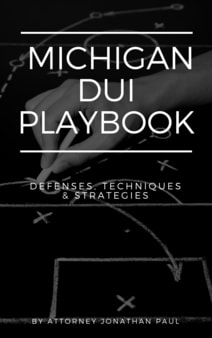Family Man, Attorney & AuthorClick to Call Me: 248-924-9458As a former Michigan prosecutor, I worked on a lot of Malicious Destruction of Property cases, which are usually referred to as MDOP cases. These type of cases can either be a misdemeanor or a felony, which is determined by the amount of damage to the property in question.
If the value is below $200, it is a 93 day misdemeanor If the value is between $200 and $999 it is a one year misdemeanor If the value is over $1000, it is a felony offense As a former prosecutor, I would look for a couple things when evaluating the case. I would look at the relationship between the two parties; do they know each other? Is there a possibility that the property could be owned by both parties if they reside together? Does the accused defendant have a criminal record? How old is this person? When and where did this happen, and were both parties present? I saw MDOP cases that ranged from jealous spouses or girlfriends and boyfriends slashing tires or breaking out car windows when the other party was not present, to someone smashing a television or computer in front of the other party, but both parties claim they owned the television or computer. Many MDOP cases come with additional charges. It was not uncommon to see domestic violence or assault charges along with these MDOP charges. I would always look at the most serious crime, which as a prosecutor would likely be the charge where someone was assaulted rather than property being damaged. Let's assume we're only dealing with the Malicious Destruction of Property charge. If the defendant was under 24 years old, they might qualify for HYTA, but as the prosecutor, I would need to approve this if the party was 21, 22 or 23 years old. Each prosecutor is different on this policy. If the person was under 21 or under 24, the judge still needs to agree with this outcome. If the person did not qualify for this program, I might consider a reduction in charges if the victim is made whole and the property is paid for via restitution. This might be a felony MDOP reduced down to a misdemeanor if payment is made as part of the deal. Occasionally, I might even consider a disorderly conduct charge, but I was a very open-minded prosecutor, most prosecutors are not as easy to work with as myself. As a defense lawyer, I take that experience as a prosecutor and put my client in the best position to show the other side of who they are. To be judged based on a single a police report and incident is the lazy approach to handling a case like this; a poor choice brought on by anger or jealousy is not an excuse, but it is surely the reason. I like to get to the bottom of why my client found themselves in this type of situation. I like to educate the prosecutor on who my client actually is; what they do for a living, their family, their goals and dreams. My clients are human, some get themselves into worse situations than most, but there is always a path to expand the information being considered by the judge and prosecutor. I've had clients caught red handed destroying property of another, and I have had clients that had no intent of what they did or did not actually create any actual damage, but the other party calls the police and a charge is issued on limited information. I have dealt with broken car windows, smashed laptops, but also cases where my client's sprinkler sprays on a neighbor's yard and they claim some sort of damage was done. As a defense lawyer, I take the facts in the case and try to position my client in a way where we are already learning and growing from the incident. If my client was in a bad place mentally or emotionally at the time, we're probably in counseling already, if alcohol is involved, we are focusing on insight and awareness and testing for alcohol to show we are sober and have a clear mind going forward. There is always something to do to improve your position when you walk into the courthouse. If the claim is bogus by the "victim" then we're doing what we can to present the truth in the case. A prosecutor only knows what the police reported in their police reports and what the "victim" claims. It's rare my client had a chance to make a statement, and if they did, the report is tilted in favor of the prosecution, not to my client or they would not be charged to begin with. We use time to improve a Michigan MDOP case; if we just relied upon what happened in the heat of the moment then my client is setup to have a criminal record and potentially go to jail. But if we step back, regroup and improve our position, we can go into court and resolve the case while achieving the client's goals. |
My Books Available on Amazon.com |
|
Representing clients in Ann Arbor, Canton, Brighton, Howell, Saline, Adrian, Taylor, Plymouth, Northville, Westland, Ypsilanti, Pittsfield Township, Warren, Sterling Heights, Farmington, Pontiac, Romulus, Lansing, Novi, South Lyon, Southfield, Birmingham, Bloomfield Hills, Royal Oak, Troy, Rochester, Jackson, East Lansing, Garden City, Livonia, Dearborn, Detroit, St Clair Shores, Hazel Park, Ferndale, Madison Heights, Waterford, Milford, Shelby Township Clarkston, Oak Park, Berkley, Fraser, Sterling Heights, Clinton Township and others throughout Washtenaw, Wayne, Monroe, Jackson, Saginaw, Macomb, Ingham, Lenawee, Charlevoix, Ottawa, Clinton, Eaton, Kent, Crawford, Allegan, Emmet, Barry, Kalkaska, Berrien, St. Clair, Livingston, Oakland County & Northern Michigan
Representing clients faced with DUI/drunk driving, retail fraud/shoplifting, drug charges, MDOP, domestic violence, reckless driving, disorderly conduct, careless driving, leaving the scene of an accident, fake ID, open container, UIP, early termination probation and other misdemeanor and felony charges. |
Ann Arbor Office LocationPlymouth Office Location |







